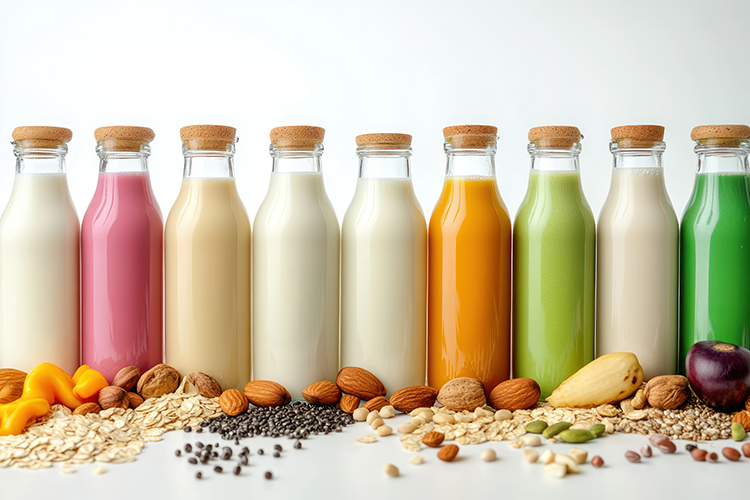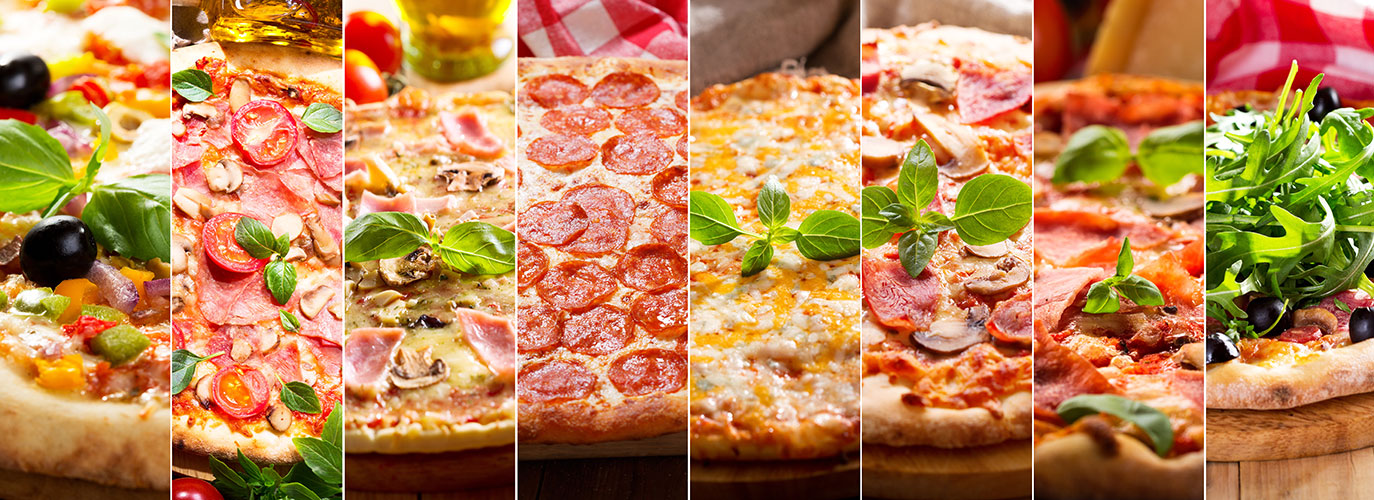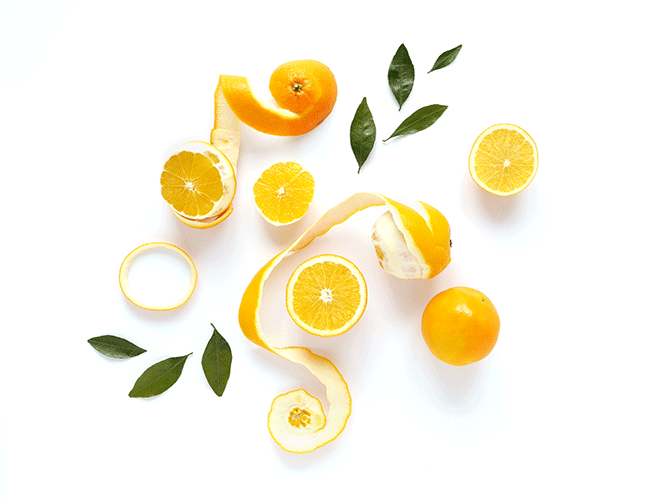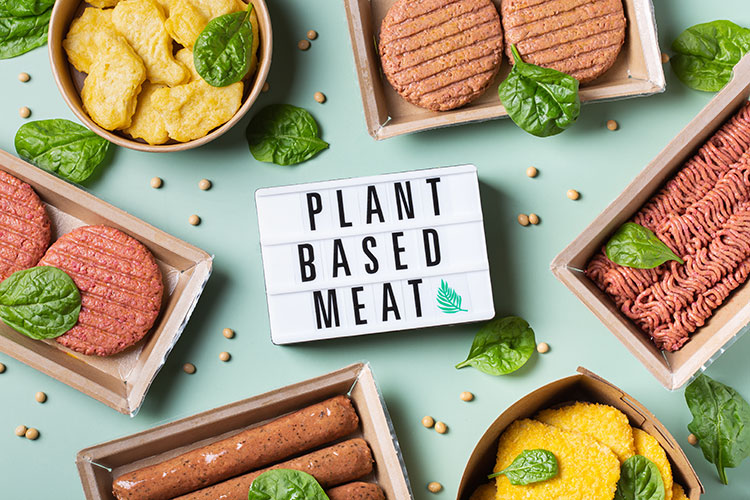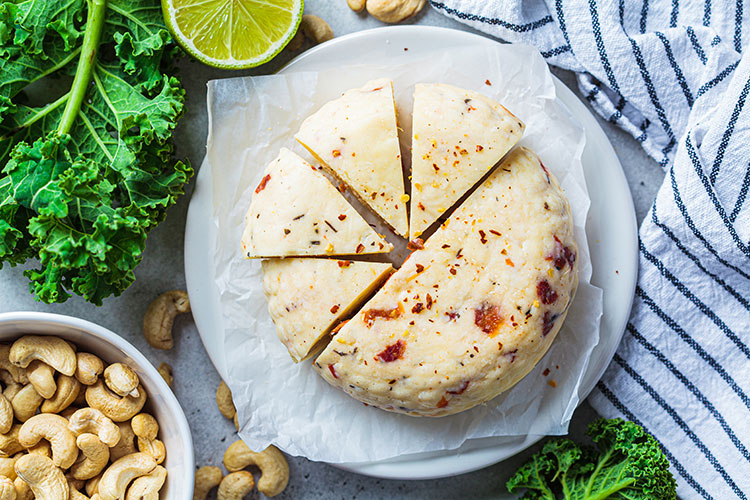Pour Me Up Plant-based Milk Formulation Trends
Plant-based dairy alternatives continue to innovate with protein and calcium enhancements, cleaner labels, organic statuses and sustainability demands from consumers. Regardless of the market trend, Citri-Fi® citrus fiber is an ideal clean label option to improve the stability and natural mouthfeel at low usage levels (<1%) in plant-based milk formulations. Product developers have this upcycled ingredient available in their tool box for future opportunities as well ranging from dairy-free kids beverages to GLP-1-centric non-dairy drinks.
Consumers have access to every spectrum of the rainbow when it comes to choosing a plant-based milk. This category exploded beyond the original rice and soy offerings. Now, the market offers plant-based dairy options derived from oat, almond, macadamia, hazelnut, coconut and hemp to a name few. Besides the myriads of beverage bases, this category continues to milk the money tree by launching new innovative products addressing consumers' needs and concerns. Some of these plant-based milk formulation trends revolve around nutrition, organic status, label transparency and sustainability.
Plant-based Milk Formulations: Pumping up the Protein
Because animal-based dairy milk innately contains nutritional components such as protein and calcium, consumers expect a mirror image in plant-based milk alternatives. Products today are pushing the envelope when it comes to packing a punch. However, fortifying a plant-based milk comes with its hurdles and one of it being separation. Some stabilizers, like gellan gum, are excellent due to their suspension properties. However, at the same time, consumers raise a brow these days if ingredients do not resonate with them.
Citri-Fi citrus fiber, an upcycled ingredient from the citrus juicing industry, is a clean label alternative. The natural water holding and emulsification properties due to it native pectin make it a highly functional ingredient at low usage levels (<1%). It is this dual functionality that gives developers an edge in fortifying plant-based milk formulations with protein, calcium and/or other nutritional ingredients. The natural citrus fiber not only cleans up the label, but also, it produces a smooth and natural mouthfeel. Formulating with success does require a few handy tricks that the Fiberstar technical team can coach on. This guidance can help shorten the learning curve whether it is choosing the best calcium salt to activating citrus fiber’s gelling properties.
Clean Label Spills into Plant-based Simplicity
In addition to amplifying the plant-based dairy's nutritional profile, consumers are also looking for simple ingredient decks. For this reason, some plant-based milk brands tout their short ingredient labels. And some go to the level of calling out their beverage ingredients to be less than five. This strategy not only quells consumers’ label concerns, but also, keeps plant-based milk formulations straightforward. Again, these types of formulations need clean label food ingredients that can be used to provide the function of multiple texturants or stabilizers.
Citri-Fi citrus fiber can be used to replace common hydrocolloids while still maintaining stability and natural mouthfeel. There are recommended processing methods and usage rates that allow Citri-Fi to create gum-free dairy alternatives. The technical team’s formulation tips depend on the type of plant-based milk, fortifying agents and other required ingredients. Labeling options include citrus fiber, dried citrus pulp or citrus flour which all resonate well in the natural markets.
Organic Growth of Dairy Alternatives
Despite conventional dairy-free beverages owning the lion's share of the market, the organic segment is making strides. Many consumers are switching over to organic versions for various reasons. For instance, organic echoes wellbeing in those concerned about where their food comes from. By choosing organic, consumers feel they are doing the right thing for their health and the environment.
Though there are several citrus fiber suppliers in the market, Fiberstar is one of very few suppliers that offer USDA organic certified citrus fiber. This Citri-Fi 400 series provides the same high water holding and emulsification properties as the 100 and 600 conventional series. At less than 1% usage, the Citri-Fi 400 series can create gum-free dairy alternatives while preserving the natural mouthfeel. The 400 line is found in several commercial plant-based milk formulations today.
Environmentally-friendly yet Sustainable Plant Milks
Deciding on whether to purchase almond or oat milk is one step of the decision process. Today, consumers’ sensitivity towards Mother Earth has grown a thousand-fold. Their eyes and ears seek out products with a green storyline. But being green is more than just waving the environmental flag. It also implies that all steps in the supply chain such as sourcing, processing and transporting should be sustainable for the long term.
For example, citrus fibers like Citri-Fi are upcycled ingredients of the citrus juicing industry. The process, which is free from chemical modifications, converts this byproduct into higher-valued food ingredients which can be used in plant-based milk formulations. Not only is Citri-Fi environmentally friendly, but it also uses a sustainable clean process. So, Citri-Fi tells its own green narrative. In addition, Citri-Fi is non-GMO Project certified, allergen-free and gluten-free. There is no e-number associated with Citri-Fi which is key in regions like Europe.
The Future Sips of Plant-based Milks
This category will remain in the limelight. Developers will continue to explore new boundaries. For instance, novel dairy alternative bases such as pea, chickpea and fava bean are emerging. And due to new processing techniques, other plant-derived bases using lentils, microalgae, fruits and vegetables remain on the radar.
However, most dairy alternative beverages are geared toward adults. Today, more food categories are branching out and creating products specific for toddlers and kids. There is ample room to market healthy plant-based milks to this age bracket as an alternative to moo juice. And like the animal dairy industry, there are opportunities to improve the nutrition either by fortifying or creating no sugar added versions. Another area of interest involves plant-based smoothies which are breaking the mold using different flavors and real fruit to support a healthy halo. And creating plant-based beverages with different textures such as full-fat and skim to simulate their animal-based counterparts is another strategy for differentiating dairy-free products.
Lastly, one other area of opportunity lies within the GLP-1 segment. Many consumers using this type of weight loss drug have encountered a change in eating patterns. Not only are they eating less, but they are choosing protein-enhanced or sugar-reduced options to complement their diet. Creating plant-based milk formulations addressing these needs is a sure win with this segment over the next few years.
For more information on how to use Citri-Fi citrus fiber in plant-based milk formulations, please contact us.

